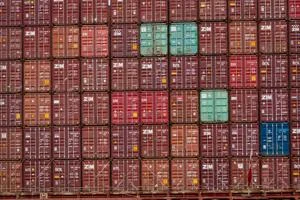As leaders worldwide prepare to face President Donald Trump’s import taxes, many are seeking exemptions for key industries and products, something Trump initially said he wouldn’t grant.
The diplomatic efforts show foreign leaders are eager for carveouts and workarounds after Trump’s tariffs on products from 66 nations, the 27-nation European Union, and others took effect.
Many leaders want better terms – or at least exemptions.
Swiss President Karin Keller-Sutter, under political pressure at home, rushed to the U.S. on Monday to get a better deal. She’s now leaving without one.
The Swiss Federal Council said that 39% tariffs are hitting Swiss products entering the U.S. The Federal Council said it “remains firmly committed to pursuing discussions with the U.S. with the aim of reducing these tariffs as swiftly as possible.”
Indian Prime Minister Narendra Modi said Thursday he would not compromise even if he had to pay a price. Trump imposed a 50% tariff on Indian goods, doubling the 25% rate to penalize India for buying oil from Russia.
“For us, our farmers’ welfare is supreme,” Modi said at an event in New Delhi in his first remarks since the tariffs went into effect, Reuters reported. “India will never compromise on the wellbeing of its farmers, dairy (sector) and fishermen. And I know personally I will have to pay a heavy price for it.”
Modi didn’t mention Trump or the U.S. trade talks. In the meantime, Modi is planning his first visit to China in seven years as he works with other BRICS nations on trade.
Even Brazil got some exemptions, despite Trump tying a trade deal with that country to former President Jair Bolsonaro, who is on trial for plotting to overturn the 2022 election. Trump hit Brazil with 50% tariffs, but nearly 700 products are exempt.
The American Chamber of Commerce for Brazil estimated that tariff exceptions on Brazilian products cover more than 40% of goods traded between the two nations. All told, about $18.4 billion in Brazilian exports are exempt from Trump’s tariffs. The list of exceptions contains 694 products, including oil, fuel, airplanes, orange juice and pulp, minerals, fertilizers and engines, among others. Brazil’s top exports to the U.S., coffee and beef, remain subject to the 50% tariff, according to local media reports.
The Trump administration had already made bigger and broader concessions. In April, the White House said smartphones, laptops and other consumer electronics would be exempt from higher tariffs.
Trump was happy to see the tariff revenue coming into the U.S.
“IT’S MIDNIGHT!!! BILLIONS OF DOLLARS IN TARIFFS ARE NOW FLOWING INTO THE UNITED STATES OF AMERICA!” Trump wrote on Truth Social.
He later added: “RECIPROCAL TARIFFS TAKE EFFECT AT MIDNIGHT TONIGHT! BILLIONS OF DOLLARS, LARGELY FROM COUNTRIES THAT HAVE TAKEN ADVANTAGE OF THE UNITED STATES FOR MANY YEARS, LAUGHING ALL THE WAY, WILL START FLOWING INTO THE USA. THE ONLY THING THAT CAN STOP AMERICA’S GREATNESS WOULD BE A RADICAL LEFT COURT THAT WANTS TO SEE OUR COUNTRY FAIL!”
Trump’s social media comments refer to the small businesses and states challenging his tariff authority in court. Appellate court judges scrutinized Trump’s tariff authority last week, asking attorneys on both sides of the case tough questions about the president’s authority to restructure global trade without help from Congress.
Trump used the International Emergency Economic Powers Act to underpin his “Liberation Day” tariffs. On April 2, Trump announced reciprocal tariffs on nearly all U.S. trading partners. He later suspended those higher tariffs but used the threat of higher taxes to get foreign nations to agree to new trade deals. Most of the deals Trump has announced so far come with a 15% import tax on foreign countries, although some face higher rates.
Democrat-led states and five small businesses challenged Trump’s authority under the 1977 law. A lower court tossed the tariffs, saying Trump overstepped. The administration took it to the U.S. Court of Appeals for the Federal Circuit, which heard oral arguments in the case last Thursday. The court could move quickly on a decision in that case.
In the meantime, the U.S. Customs and Border Protection is collecting the taxes.
“Tariffs are flowing into the USA at levels not thought even possible!” Trump wrote.
Trump has said he wants to use tariffs to restore manufacturing jobs lost to lower-wage countries in decades past, shift the tax burden away from U.S. families, and pay down the national debt.
A tariff is a tax on imported goods paid by the person or company that imports the goods. The importer can absorb the cost of the tariffs or try to pass the cost on to consumers through higher prices.
Economists, businesses, and some publicly traded companies have warned that tariffs could raise prices for U.S. consumers.






